This article was medically reviewed by Lewis Chen, DDS, FICOI, FIADFE. Dr. Lewis Chen is a licensed Dentist in both New York and New Jersey, specializing in providing high-quality oral care in the form of preventative care. He holds an Economics degree from New York University. Dr. Chen earned his doctorate at Columbia University College of Dental Medicine. He graduated top of his class with the highest honors and distinction and was nominated and inducted into the only renowned, national dental honor society, Omicron Kappa Upsilon (OKU). He then completed a comprehensive training program at the Bronx VA Medical Center and, shortly after, decided to pursue multiple practice ownership and management. Dr. Chen has acquired numerous accolades over the years, including New York Academy of Dentistry Exemplary Professional Conduct Award, Academy of General Dentistry Outstanding General Practitioner Award, American Academy of Implant Dentistry Award, and Pierre Fauchard Foundation Award.
wikiHow marks an article as reader-approved once it receives enough positive feedback. This article received 24 testimonials and 100% of readers who voted found it helpful, earning it our reader-approved status.
This article has been viewed 362,103 times.
Getting braces can mean some major adjustments. The first few days after your orthodontist puts them in, they can cause some discomfort. You can prepare mentally and physically for the day you braces are put on (and life afterwards) by understanding exactly what is going to happen, which supplies you’ll need, and how to take care of yourself and your braces.
Steps
Preparing Emotionally
-
1Focus on the benefits of getting braces. This holds especially true if the thought of getting braces makes you feel afraid, nervous, or reluctant. Braces will help to straighten your teeth and improve your smile. No matter what, this will raise your confidence. Also remember that lots of people have or have had braces—you’re not alone.[1]
-
2Choose the type of braces you will get. Although metal wire braces are probably the most traditional and widespread type of braces, there are other options. Sometimes you can choose which type of braces to get.
- Clear teeth aligners are an alternative. These are made of a transparent plastic material that are made to fit your specific teeth. A sequence of different sets are applied to gradually shift your teeth into position. Aligners can be easily removed so that you can eat and drink normally and no one will even notice you are wearing them.
- Lingual braces, which fit on the inside surface of your teeth, are another option. However, keep in mind that these braces are more expensive since they are made of gold.
- Each of these types of braces has advantages and disadvantages, and not every type is right for every person. Talk to your orthodontist if you have questions about the different types.
Advertisement -
3Choose the color of your braces. If you are getting metal wire braces, you may get to choose the color of their brackets and/or rubber bands.[2] This can be fun, and a way to personalize your braces. For instance, you could:
- Choose your favorite color
- See if you can use more than one color
- Choose a seasonal color(s) (like black and orange for Halloween!)
- Choose the color(s) of a school or sports team
-
4Brace yourself for slight discomfort. The process of getting metal braces is fairly quick. The orthodontist will glue small brackets to your teeth, and then insert wires to connect the brackets. You might feel a little pressure on your teeth as these parts are put on, and your mouth might feel a little sore for a few days, but this should go away quickly. Talk to your orthodontist if you have questions about how it will feel.
- You can also ask people who have already had braces about their experiences. This may provide some answers to your questions and it may also help you to feel motivated about getting braces because you can see other people’s end results.
-
5Eat hard, crunchy, or chewy foods, if you want. In the first few days after your braces are put on, you will want to eat only soft foods. During the time that you have to wear braces, you will have to avoid hard, crunchy, chewy, and sugary foods and drinks. Enjoy some of these before getting your braces, if you want, since it might be a while before you can have them again.
-
6Bring a book, music, or some other distraction to the orthodontist’s office. You might have to wait a while at the orthodontist's office. Having something to keep you interested and busy while you wait will put your mind at ease, and help to pass the time.
Getting the Supplies You’ll Need
-
1Stock up on soft foods. Because of the pressure on your teeth and the adjustment time needed, you will want to stick to soft foods for the first few days after getting braces. .[3] Try things like smoothies, mashed potatoes, ice cream, yogurt, etc.
-
2Make sure you have a supply of wax. The wax designed for braces can coat the wires so that they don’t irritate your mouth.[4] You can ask your orthodontist for some, but you might also want to get extra for the first few days and afterwards. [5]
- This wax is sold under various product names, like "orthodontic wax" "braces wax," "wax for braces," or "dental wax." It is widely available at pharmacies.
- It’s always a good idea to have a supply of wax with you. That way, if one of the wires accidentally breaks, you can coat it with wax to keep it from poking you until your orthodontist can fix it.
- Braces can also cause soreness from rubbing on the inside surface of your cheeks or lips in the first days of wearing them, so covering them with wax may be helpful.
-
3Have pain reliever ready. An over-the-counter pain reliever can ease any discomfort your braces cause in the first few days.[6] Make sure you have a supply before the braces are put on, just in case you need it.
Gathering Knowledge
-
1Ask your orthodontist any questions you have about getting braces. You will have to see a dentist for assessment before ever getting braces, so ask ahead of time if you have questions about what is involved. If you still have questions on the day the braces are put in, or haven’t had a chance to ask them, talk with your orthodontist before starting the procedure. If you have any questions at any step of the way while your braces are being put in, ask.
-
2Know exactly how the braces will be applied. Having a sense of what is going to happen as the braces are put on can ease your mind. Traditional wire braces are applied in several steps:
- First, bands will be placed on your back molars. At this point, you might start to feel some pressure on your teeth.[7]
- Next, a bracket made of metal or ceramic will be attached to each of your teeth. These brackets will be used to support the wires of the braces. Glue will be used to adhere the brackets to your teeth—it might not taste good, but it is harmless.[8] You might get to choose the color of these brackets.[9]
- After that, the orthodontist will place wires in the tops and bottoms of the brackets. These wires help to gradually move your teeth into position during the time that you wear the braces. The wires will be cut so that they don’t poke the inside of your mouth.[10]
- Next, small rubber bands will be inserted to keep the wires in the brackets. You might get to choose the color of these bands.[11]
- If you are getting clear teeth aligners, these will be fitted to your particular teeth, and can be removed to eat. They look similar to the custom made whitening trays used for the home whitening treatment. You’ll have to get a new set of aligners every two weeks.
-
3Understand how to get through the first few days with braces. At first, you will be very conscious of the fact that you are wearing braces. As time goes on, you will get more used to it. Still, you should know that in the first few days:
-
4Make yourself comfortable. Since your braces might make your mouth sore at first, you will probably want to take it easy for a while. Aside from taking pain relievers to avoid soreness, you might want to avoid talking too much and other activities that might cause discomfort.
- If you play a wind instrument (brass or reed), you will still be able to with braces. However, there will probably be an adjustment period needed to get used to the feeling of playing your instrument with braces. You also might want to avoid playing your instrument for the first few days after your braces are put in.
-
5Prepare for life with braces. Living with braces can mean some long-term adjustments. Knowing about this ahead of time will make the whole process easier.
- You will have to avoid hard, chewy, crunchy, and tough foods, as well as sugary foods and drinks while you have braces. Ask your orthodontist about specific recommendations regarding what is ok to eat, and what is not.[14] [15]
- You might be asked to wear headgear. Headgear is a rigid wire that hooks onto the bands of your braces and around your head. It helps to either move your teeth into position, or keep them there. Usually, you are only asked to wear headgear at night, if at all.[16]
- Your braces will have to be adjusted periodically, according to a schedule your orthodontist develops. Your teeth will move gradually into position, and your orthodontist will have to adjust the braces as they do.
- Most people wear braces between one and three years.
- After your braces come off, your orthodontist might ask you to wear a retainer for a while. This is a rigid piece of material that fits behind your teeth.
-
6Take good care of your braces. Just as you would normally need to take care of your teeth, you will have to regularly brush and rinse your teeth and braces.[17] Ask your orthodontist for any special tips for keeping your braces and teeth clean.
- Food particles can get caught in your braces. Be extra sure to brush well around all the parts of the braces (especially after meals) to avoid plaque buildup and tooth decay. You will need to spend extra time brushing every bracket going from the back of your mouth to the front. Make sure you brush every tooth thoroughly and use dental tools to get between your teeth, such as an interdental brush, floss, and an oral irrigator.
- Rinsing with mouthwash will also help to keep your teeth and braces clean. Your dentist might also ask you to use a fluoride rinse for extra protection.
- You will need to floss using a special flexible plastic “threader” that can get around the parts of the braces. These are widely available at pharmacies.
Expert Q&A
Did you know you can get expert answers for this article?
Unlock expert answers by supporting wikiHow
-
QuestionWhen doing the procedure will there be any blood?
 Cristian Macau, DDSDr. Macau is an oral surgeon, periodontist, and aesthetician at Favero Dental Clinic in London. He received his DDS from Carol Davila University of Medicine in 2015.
Cristian Macau, DDSDr. Macau is an oral surgeon, periodontist, and aesthetician at Favero Dental Clinic in London. He received his DDS from Carol Davila University of Medicine in 2015.
Doctor of Dental Surgery Getting braces does not cause any bleeding at all. The procedure is clean and easy, it only requires patience and calm because it is a very meticulous activity. There are rare cases when teeth are impacted - canines in general , and orthodontists require the help of a surgeon to bring the tooth in line with the others. This procedure is called orthodontic extrusion.
Getting braces does not cause any bleeding at all. The procedure is clean and easy, it only requires patience and calm because it is a very meticulous activity. There are rare cases when teeth are impacted - canines in general , and orthodontists require the help of a surgeon to bring the tooth in line with the others. This procedure is called orthodontic extrusion. -
QuestionCan I go back to school the same day after getting braces?
 Cristian Macau, DDSDr. Macau is an oral surgeon, periodontist, and aesthetician at Favero Dental Clinic in London. He received his DDS from Carol Davila University of Medicine in 2015.
Cristian Macau, DDSDr. Macau is an oral surgeon, periodontist, and aesthetician at Favero Dental Clinic in London. He received his DDS from Carol Davila University of Medicine in 2015.
Doctor of Dental Surgery Usually yes. There is no reason not to go back to school the same day, especially if you have some tests or important lessons. You will have some discomfort, but most patients get used it to after the first two days. Also, your braces may capture the attention of your classmates who will probably find them very interesting, especially if you choose colored rubber bands.
Usually yes. There is no reason not to go back to school the same day, especially if you have some tests or important lessons. You will have some discomfort, but most patients get used it to after the first two days. Also, your braces may capture the attention of your classmates who will probably find them very interesting, especially if you choose colored rubber bands. -
QuestionWill the dentist give you the little shot that numbs your mouth?
 Cristian Macau, DDSDr. Macau is an oral surgeon, periodontist, and aesthetician at Favero Dental Clinic in London. He received his DDS from Carol Davila University of Medicine in 2015.
Cristian Macau, DDSDr. Macau is an oral surgeon, periodontist, and aesthetician at Favero Dental Clinic in London. He received his DDS from Carol Davila University of Medicine in 2015.
Doctor of Dental Surgery When bonding the brackets you will feel no pain. Your dentist may use a topical anesthetic such as spray or give you a small shot to numb a specific tooth or area when placing the orthodontic bands in the back of your mouth. After the metal wire is placed you will feel a constant pressure on all of your teeth and you will need to take some medication to reduce it.
When bonding the brackets you will feel no pain. Your dentist may use a topical anesthetic such as spray or give you a small shot to numb a specific tooth or area when placing the orthodontic bands in the back of your mouth. After the metal wire is placed you will feel a constant pressure on all of your teeth and you will need to take some medication to reduce it.
References
- ↑ Lewis Chen, DDS, FICOI, FIADFE. Licensed Dentist. Expert Interview. 11 May 2021.
- ↑ http://www.pamf.org/preteen/mybody/dental/braces/gettingbraces.html
- ↑ http://www.pamf.org/preteen/mybody/dental/braces/gettingbraces.html
- ↑ Lewis Chen, DDS, FICOI, FIADFE. Licensed Dentist. Expert Interview. 11 May 2021.
- ↑ http://www.pamf.org/preteen/mybody/dental/braces/gettingbraces.html
- ↑ Lewis Chen, DDS, FICOI, FIADFE. Licensed Dentist. Expert Interview. 11 May 2021.
- ↑ http://www.pamf.org/preteen/mybody/dental/braces/gettingbraces.html
- ↑ http://www.pamf.org/preteen/mybody/dental/braces/gettingbraces.html
- ↑ http://www.pamf.org/preteen/mybody/dental/braces/gettingbraces.html
- ↑ http://www.pamf.org/preteen/mybody/dental/braces/gettingbraces.html
- ↑ http://www.pamf.org/preteen/mybody/dental/braces/gettingbraces.html
- ↑ http://www.pamf.org/preteen/mybody/dental/braces/gettingbraces.html
- ↑ http://www.pamf.org/preteen/mybody/dental/braces/gettingbraces.html
- ↑ http://www.pamf.org/preteen/mybody/dental/braces/gettingbraces.html
- ↑ http://www.stanfordchildrens.org/en/topic/default?id=orthodonticsbraces-for-children-90-P01845
- ↑ http://www.pamf.org/preteen/mybody/dental/braces/gettingbraces.html
- ↑ http://www.pamf.org/preteen/mybody/dental/braces/gettingbraces.html
About This Article
To prepare on the day you get braces, make sure to focus on how great your smile is going to look if the thought of getting braces makes you nervous or afraid. Then, stock up on soft foods, like yogurt and mashed potatoes, since you’ll want to eat things that don’t require much chewing for at least a couple of days. You should also get some orthodontic wax, which you can put on any broken wires to keep them from poking you until you can get your dentist to fix them. You may also want to have over-the-counter pain relievers on hand in case you need them. For more tips from our Dental reviewer, including how to brush and floss your teeth once your braces are on, scroll down!
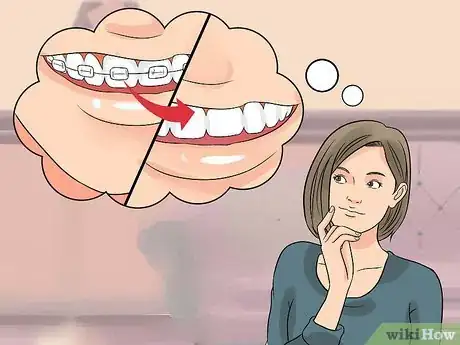

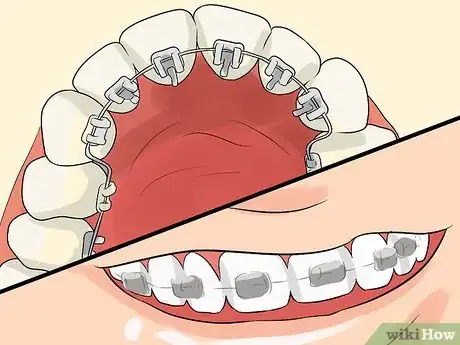
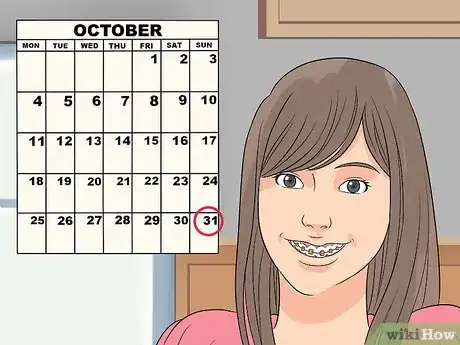
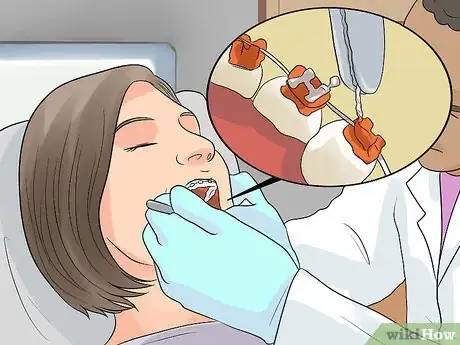

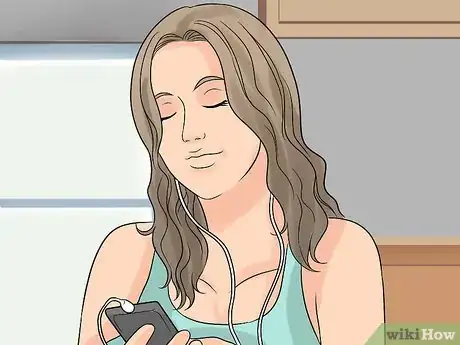

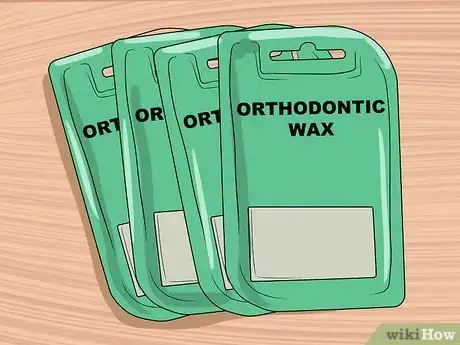
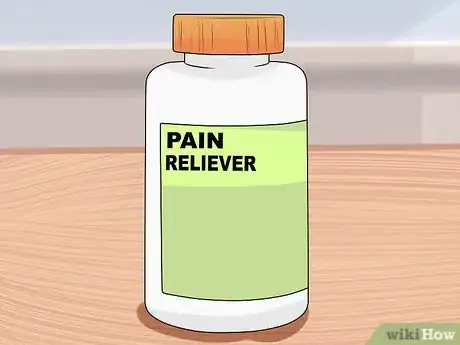
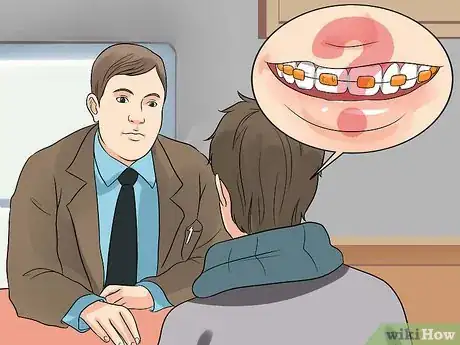
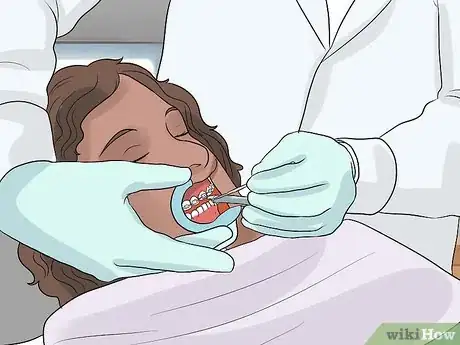
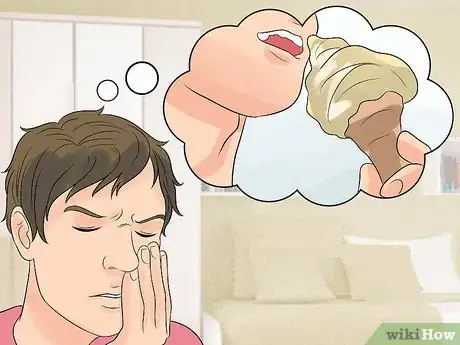
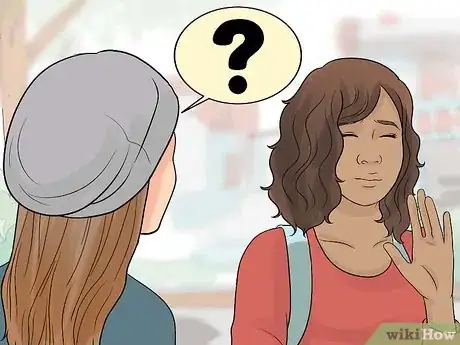

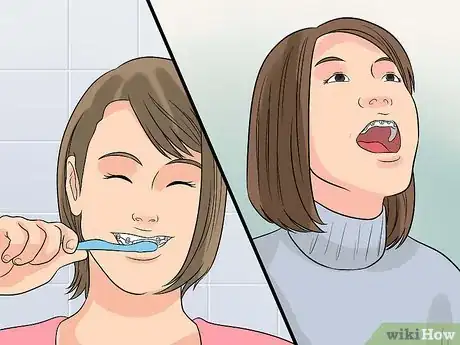

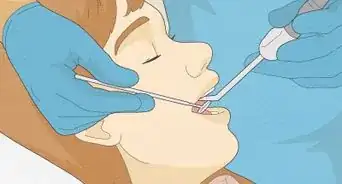
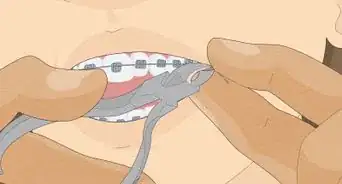

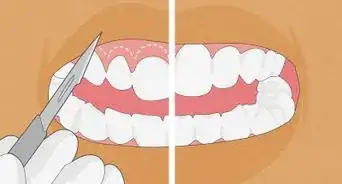

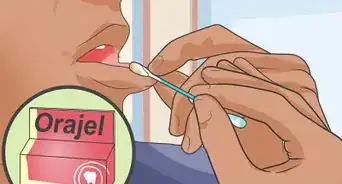

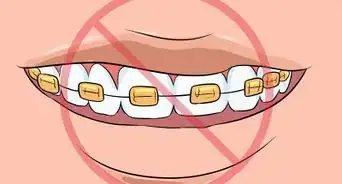
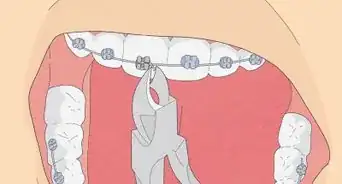
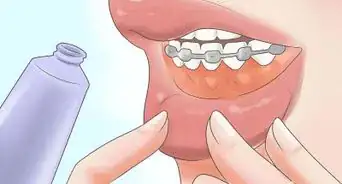
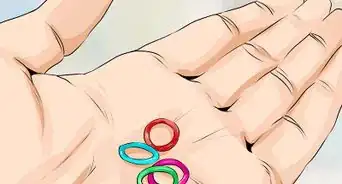
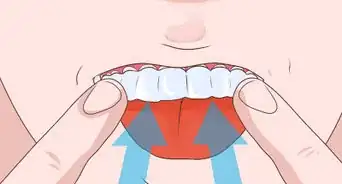
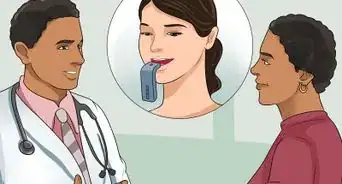












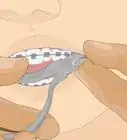




































Medical Disclaimer
The content of this article is not intended to be a substitute for professional medical advice, examination, diagnosis, or treatment. You should always contact your doctor or other qualified healthcare professional before starting, changing, or stopping any kind of health treatment.
Read More...